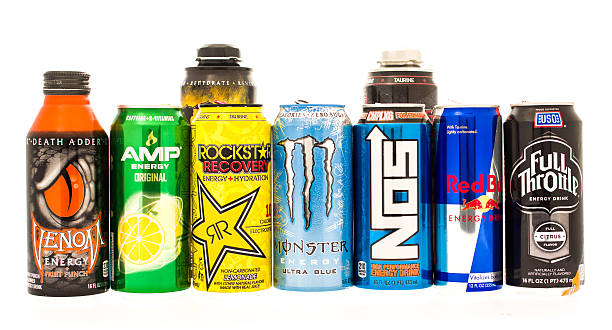Introduction
In a world where energy and vitality are prized commodities, energy drinks have surged in popularity, offering a quick and convenient solution to combat fatigue. Central to the effectiveness of these beverages is caffeine, a stimulant renowned for its ability to enhance alertness and provide a temporary energy boost. In this article, we will explore the caffeine content in energy drinks, addressing the variations, potential effects, and considerations surrounding this ubiquitous ingredient.
Caffeine as the Key Player:
Primary Stimulant: Caffeine, a natural stimulant found in coffee beans, tea leaves, and cacao, is the driving force behind the energizing effects of these beverages.
Varied Content Among Brands:
Diverse Formulations: Not all energy drinks are created equal. Caffeine content can vary significantly among different brands and even within the product lines of a single brand.
Factors Influencing Caffeine Levels:
Brand Choices: Different brands adopt distinct formulations, leading to varying caffeine concentrations.
Product Types: Energy drinks come in various forms, including shots, cans, and powders, each with its unique caffeine content.
Serving Size Matters: Paying attention to the serving size is crucial, as it directly impacts the amount of caffeine consumed per serving.
Health Impacts of Caffeine:
Positive Effects: Moderate caffeine intake has been associated with improved cognitive function, increased alertness, and enhanced physical performance.
Potential Negatives: Excessive caffeine consumption can lead to adverse effects, including insomnia, jitteriness, increased heart rate, and digestive issues.
Regulatory Guidelines:
Global Variances: Regulatory bodies worldwide set guidelines for caffeine levels in beverages, including energy drinks. These guidelines aim to ensure consumer safety and prevent excessive caffeine intake.
Misconceptions About Caffeine:
Addressing Myths: Common misconceptions surround caffeine, such as its alleged dehydrating effects or its association with heart problems. Separating fact from fiction is crucial for informed consumption.
Caffeine Sensitivity:
Individual Variations: People react differently to caffeine based on factors like genetics, age, and overall health. Understanding one’s caffeine sensitivity helps manage intake to avoid negative side effects.
Alternatives to High-Caffeine Energy Drinks:
Low-Caffeine Options: Some brands offer energy drinks with lower caffeine content for those seeking a milder boost.
Caffeine-Free Alternatives: Caffeine-sensitive individuals or those looking to reduce caffeine intake can opt for beverages without this stimulant.
Impact on Sleep:
Timing Matters: Consuming energy drinks, especially those high in caffeine, close to bedtime can interfere with sleep patterns. Being mindful of timing helps avoid sleep disturbances.
Marketing and Branding Strategies:
Highlighting Caffeine Content: Many energy drink brands prominently feature their caffeine content in marketing. Understanding these strategies empowers consumers to make informed choices aligned with their preferences.
Choosing Wisely: Reading Labels:
Nutrition Labels as Guides: The importance of reading nutrition labels cannot be overstated. These labels provide crucial information about caffeine content, serving size, and other ingredients, aiding consumers in making educated decisions.
Conclusion
Caffeine in energy drinks is a double-edged sword, offering a quick pick-me-up but also posing potential risks if consumed excessively. Understanding the variations in caffeine content and its potential impacts on health and making informed choices contribute to a balanced and mindful approach to consumption. Whether you are a regular consumer or considering energy drinks for the first time, navigating the caffeine landscape is essential for a satisfying and safe experience.
Can energy drinks be consumed on a daily basis?
While occasional consumption may be acceptable for some individuals, daily intake of energy drinks, especially those high in caffeine, may have health implications. Assessing individual tolerance and considering alternatives is essential.
Do all energy drinks have the same amount of caffeine?
No, the caffeine content varies among different brands and products. Reading labels and choosing beverages aligned with personal preferences and tolerance levels is crucial.
Can caffeine sensitivity change over time?
Yes, factors such as age and overall health can influence caffeine sensitivity. Monitoring one’s response to caffeine and adjusting consumption accordingly is advisable.
Are there natural alternatives to energy drinks for an energy boost?
Yes, alternatives like herbal teas, natural fruit juices, and beverages with lower caffeine content can provide a more moderate energy boost without the high levels found in some energy drinks.
Is it safe to consume energy drinks before exercising?
Consuming moderate amounts of energy drinks before exercise may enhance performance for some individuals. However, it’s essential to consider personal tolerance and timing to avoid potential negative effects.

